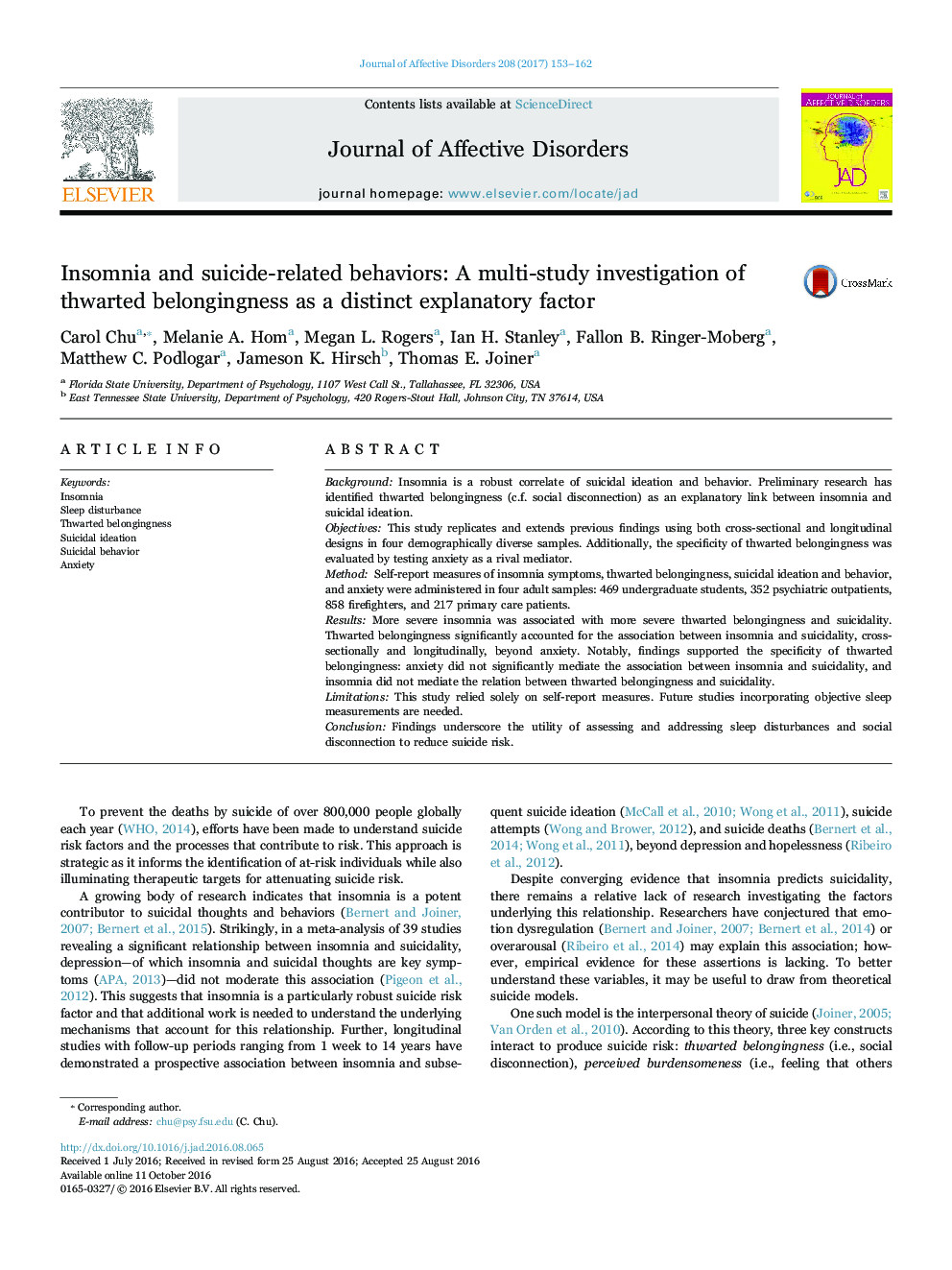| Article ID | Journal | Published Year | Pages | File Type |
|---|---|---|---|---|
| 5722071 | Journal of Affective Disorders | 2017 | 10 Pages |
â¢Insomnia is a robust predictor of suicidality.â¢We examine thwarted belongingness as an explanatory factor in four samples.â¢Insomnia was significantly related to thwarted belongingness and suicidality.â¢Thwarted belongingness accounted for relations between insomnia and suicidality.â¢Anxiety did not significantly account for relations between insomnia and suicidality.
BackgroundInsomnia is a robust correlate of suicidal ideation and behavior. Preliminary research has identified thwarted belongingness (c.f. social disconnection) as an explanatory link between insomnia and suicidal ideation.ObjectivesThis study replicates and extends previous findings using both cross-sectional and longitudinal designs in four demographically diverse samples. Additionally, the specificity of thwarted belongingness was evaluated by testing anxiety as a rival mediator.MethodSelf-report measures of insomnia symptoms, thwarted belongingness, suicidal ideation and behavior, and anxiety were administered in four adult samples: 469 undergraduate students, 352 psychiatric outpatients, 858 firefighters, and 217 primary care patients.ResultsMore severe insomnia was associated with more severe thwarted belongingness and suicidality. Thwarted belongingness significantly accounted for the association between insomnia and suicidality, cross-sectionally and longitudinally, beyond anxiety. Notably, findings supported the specificity of thwarted belongingness: anxiety did not significantly mediate the association between insomnia and suicidality, and insomnia did not mediate the relation between thwarted belongingness and suicidality.LimitationsThis study relied solely on self-report measures. Future studies incorporating objective sleep measurements are needed.ConclusionFindings underscore the utility of assessing and addressing sleep disturbances and social disconnection to reduce suicide risk.
